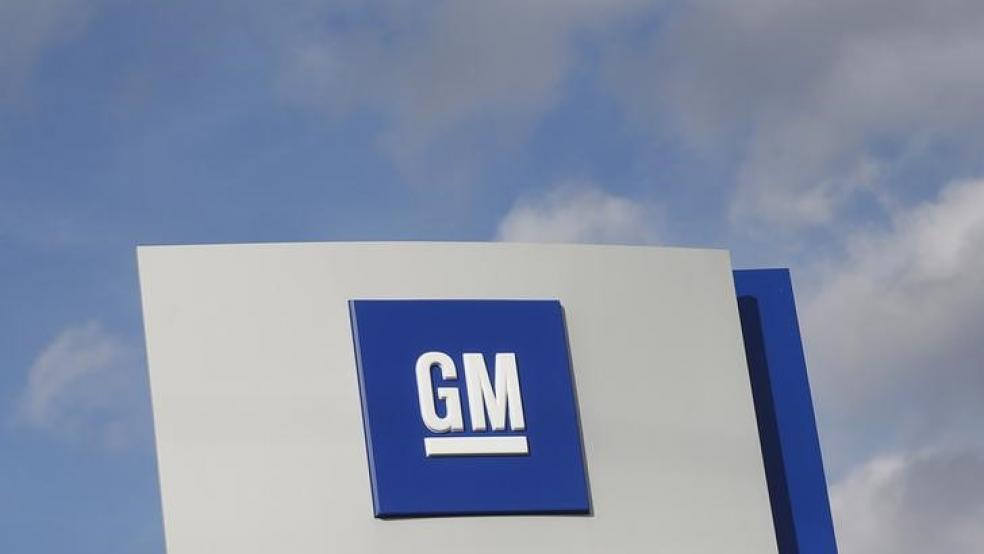President Trump invoked the Defense Production Act Friday to force General Motors to start producing ventilators.
In a presidential memorandum directed at just one company, Trump authorized the Secretary of Health and Human Services “to require General Motors to accept, perform, and prioritize Federal contracts for ventilators.”
Earlier in the day, Trump lashed out at the company and its CEO, Mary Barra, accusing the company of charging too much and moving too slowly in its effort to produce mechanical ventilators. “As usual with ‘this’ General Motors, things just never seem to work out,” Trump tweeted. “They said they were going to give us 40,000 much needed Ventilators, ‘very quickly’. Now they are saying it will only be 6000, in late April, and they want top dollar. Always a mess with Mary B.”
Trump also appeared to order GM and perhaps Ford to start producing the medical equipment, though in doing so he referred to an auto plant GM no longer owns: “General Motors MUST immediately open their stupidly abandoned Lordstown plant in Ohio, or some other plant, and START MAKING VENTILATORS, NOW!!!!!! FORD, GET GOING ON VENTILATORS, FAST!!!!!!”
The background: General Motors has been in negotiations with Ventec Life Systems to form a joint venture that would have the capacity to produce as many as 80,000 ventilators, but according to a report in The New York Times Thursday, the Federal Emergency Management Agency balked at what could be a $1 billion price tag. (It's not clear yet what the government will be paying under Trump's order.)
Perhaps not coincidentally, Trump downplayed the need for more ventilators on Thursday night in an interview with Sean Hannity of Fox News. “I don’t believe you need 40,000 or 30,000 ventilators,” he said in an apparent reference to a request made by New York state. “You go into major hospitals sometimes, and they’ll have two ventilators. And now all of a sudden they’re saying, ‘Can we order 30,000 ventilators?’”
The deeper background: Trump said more than a week ago that would invoke the Defense Production Act, a 1950 law that gives him the power to coordinate the production of goods needed to respond to a national emergency such as the coronavirus epidemic. But until today he had declined to order any companies to start producing desperately needed equipment, saying he prefers to allow private companies to meet the demand for medical supplies on a voluntary basis.
Along with several key public and private White House advisers, the U.S. Chamber of Commerce had reportedly lobbied Trump to oppose the use of the act, and the president has recently suggested that he sees federal coordination of private production as something akin to socialism. "Call a person over in Venezuela," Trump said Sunday. "Ask them how did nationalization of their businesses work out. Not too well."
Instead, Trump said that the country’s industrial base is mobilizing at a level not seen since World War II on its own, while claiming that “[w]e’re getting what we need without putting the heavy hand of government down.” In a statement Thursday, the White said the response from private industry “has been overwhelming, fulfilling government-identified needs faster than anyone thought possible.”
Facts on the ground say otherwise: A growing chorus of critics have argued that the country is falling well short of meeting the needs of the hospitals dealing with a surge of patients. More than 100 former national security officials sent Trump a letter this week asking the president to use his authority under the DPA to increase the supply of medical goods, since “private efforts without more extensive government support are proving far from sufficient to meet the current and anticipated needs.”
More broadly, the signatories said, the government needs to step in and play a central organizing role in the middle of a national emergency. “Beyond questions of supply, the private sector lacks the ability to process incoming requests, prioritize the most urgent needs, and coordinate with other companies absent more concerted government involvement,” they wrote. “That is precisely what the DPA is designed to do.”




